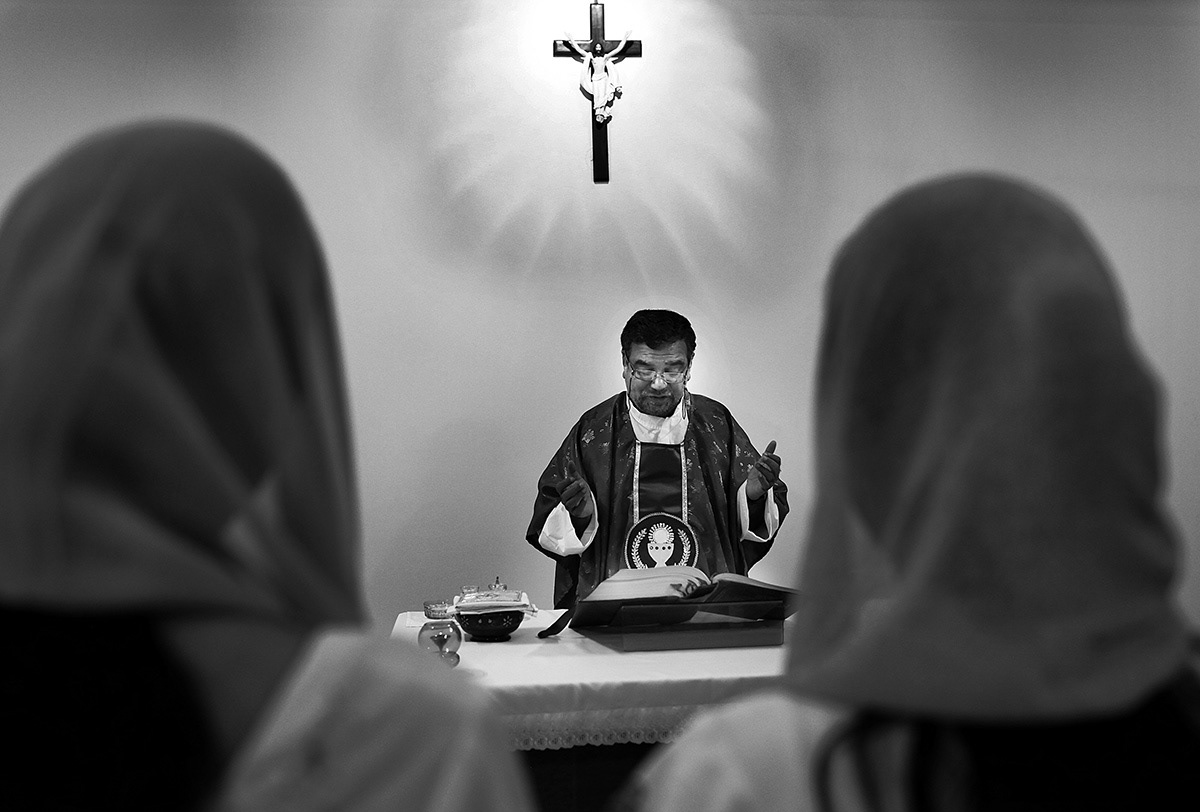Around 9 million people die every year in India. The WHO estimates that 4 million of them would benefit from palliative care; less than 1 percent get it.
For many Indians, young and old, terminal cancer doesn’t mean just death. It means a lonely, pain-filled wait. Unable to work, they are often also homeless and poorer than they have ever been in this last stage of their lives.
A pioneer Bangalore hospice called Karunashraya has been one of the first of its kind in India to offer free palliative care to those beyond medical cure.
I first encountered Karunashraya in 2011 and was fascinated by this place where people went to die. My initial instinct was to explore the concept of death and what it means to those facing it imminently. But as I spent time at the Karunashraya hospital and with the Home Care team on their endless rounds across the city, it dawned on me that the story here wasn’t death, it was about squeezing every ounce out of life in the time we have left. It wasn’t about questions about mortality and the life left behind or regrets felt. It was about surmounting our earthly coils. About a kind of comfort that soothes the troubled body and mind. It was about a team that operated in the midst of loss and bereavement with a rare kind of courage and compassion. The kind that allows you to work in this environment for years and decades, not days or months. And thrive. And help your patients thrive to the limits of their spent abilities.
I spent over two years photographing the human pillars of Karunashraya, most operating in obscurity with the kind of dedication that that seeks no reward.
Kumar used to drive tempos and mini-buses in Bangalore. He was 33 in 2012 when he discovered he had lung cancer. Six months later, he was dying. On a December morning, his family was summoned to meet him. They standby his bed as his favorite aunt clasps his hand tight.
One person by his bedside that day was not a family member. Somashekara Chari encouraged the family to take Kumar to Karunashraya, the pioneer Bangalore hospice that offers free palliative care for advance-stage cancer patients who are beyond medical cure. Somasekhara might notionally be just the designated auto driver for Karunashraya, but he has been visiting the dying for almost two decades as an emissary from the hospice. He has also become an unofficial Karunashraya homecare manager in the last few years. That day, Somashekara cajoled Kumar into drinking a few sips of coconut water while cradling his head.
Home care nurse Pushpalatha treats a 27-year-old who was in the last stages of mouth cancer caused by chewing gutka. The nurses check vitals, change dressings and ensure correct medication is provided between visits.
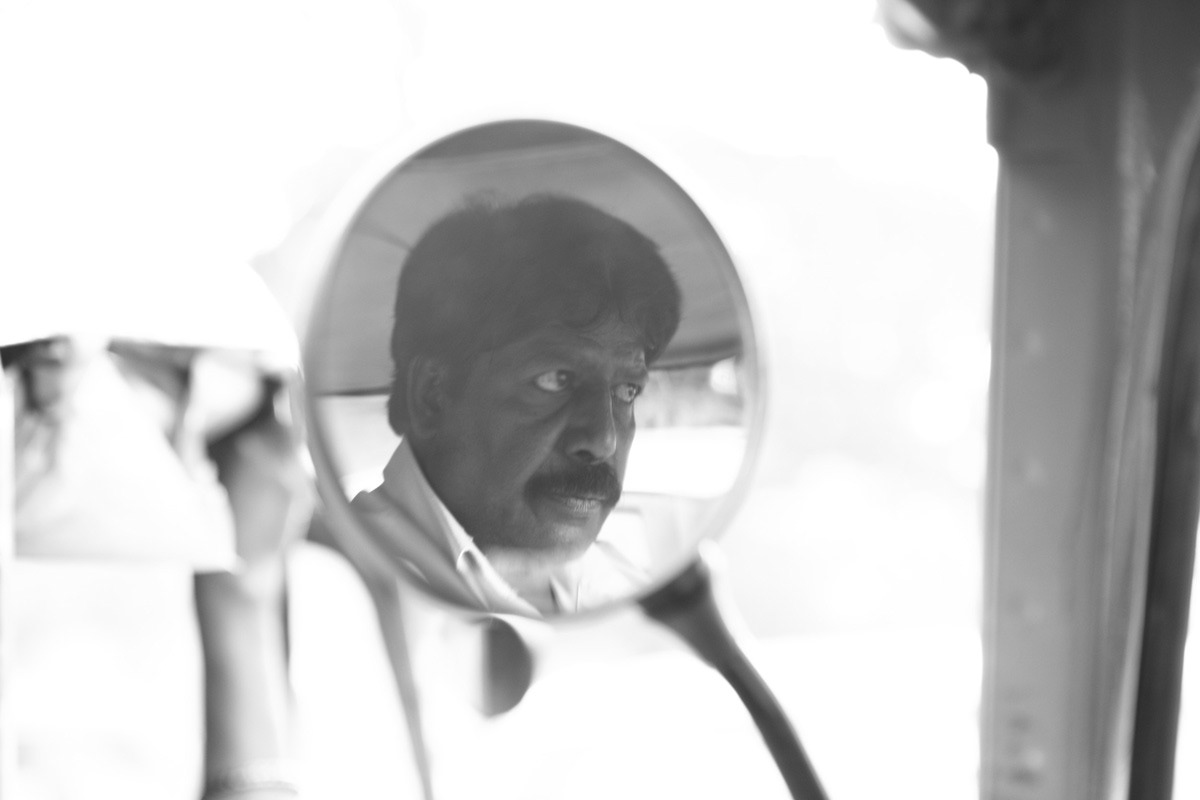
The Karunashraya homecare team visits 50 patients per week. Somesekhara drives nurses in one of the two distinctive blue auto rickshaws. An hour after he left Kumar's bedside he was still on the road when Somashekara learnt of Kumar’s death. Most of Karunashraya’s patients live in destitute poverty and close to the border of death.
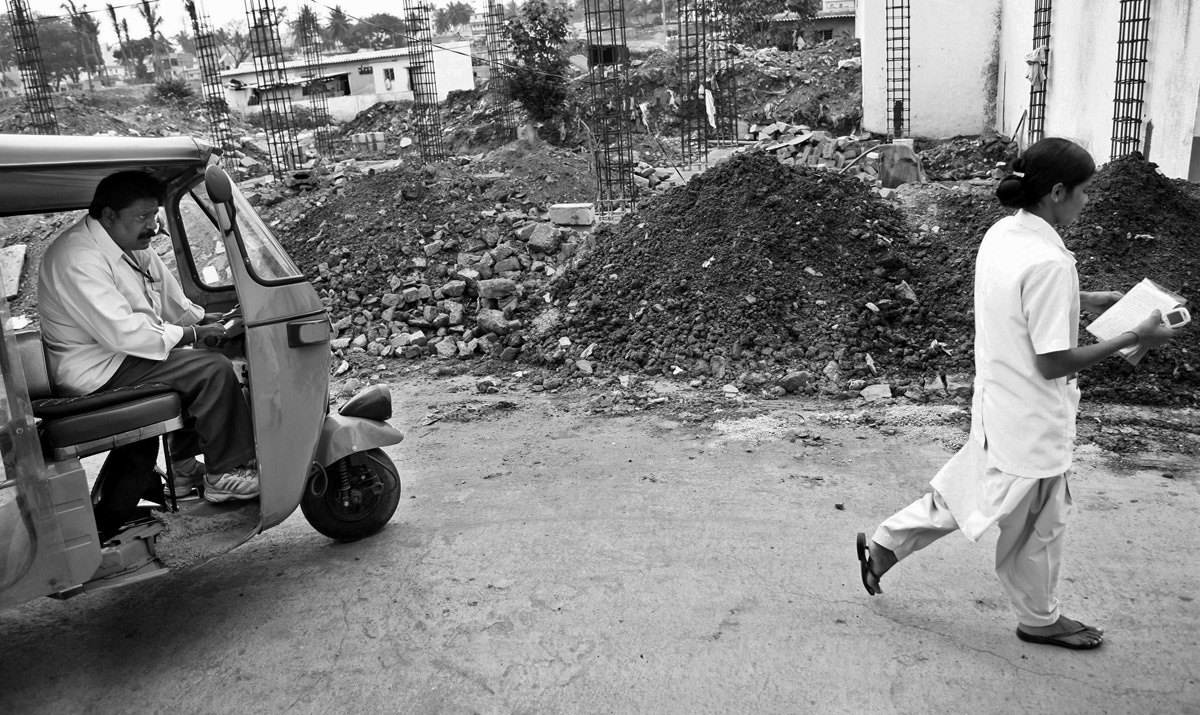
The team drives to all corners of the city, no matter how remote or inaccessible, helping the poorest of the poor find peace and dignity before a painful death.
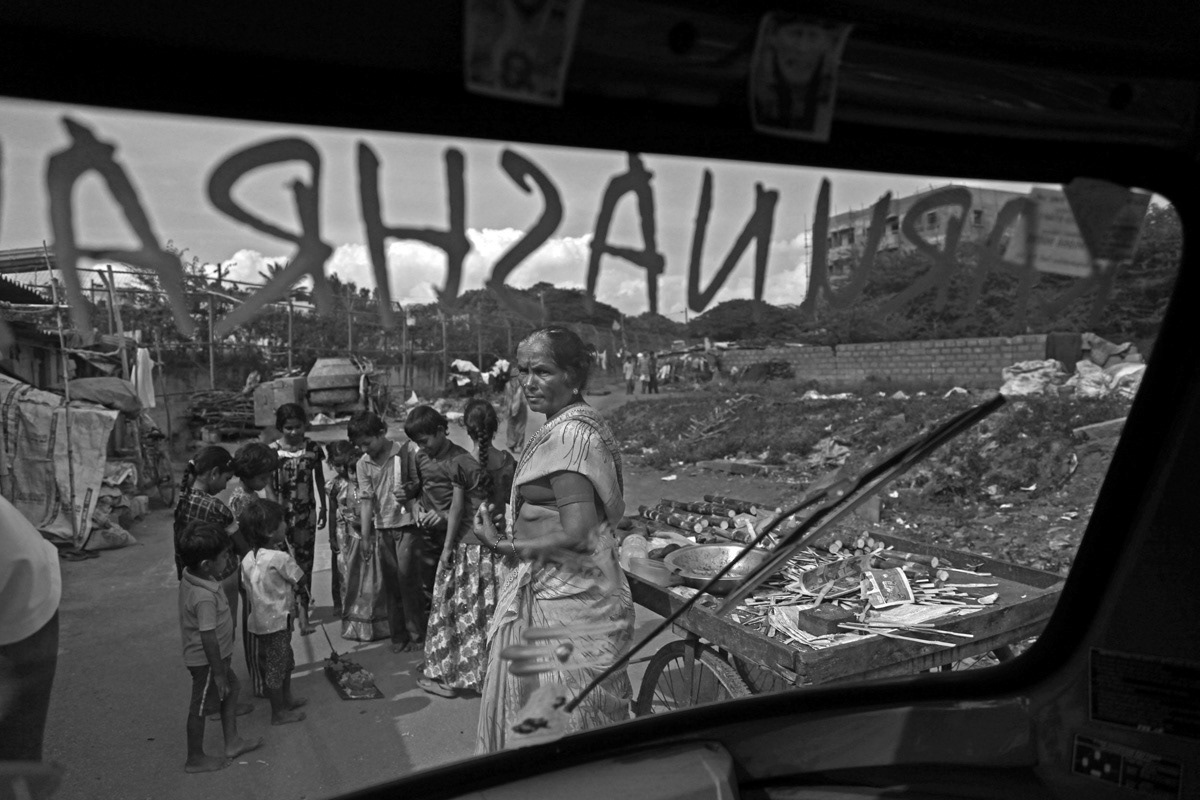
After a careful observation, Somashekara decides what is to be done. He has physically lifted people who could not move, cracked jokes for gloomy patients and their families, scolded those who were giving up on life, given practical advice, and cleaned up after people who vomited or soiled themselves. He has personally helped over 2,000 people in their most desperate hours.
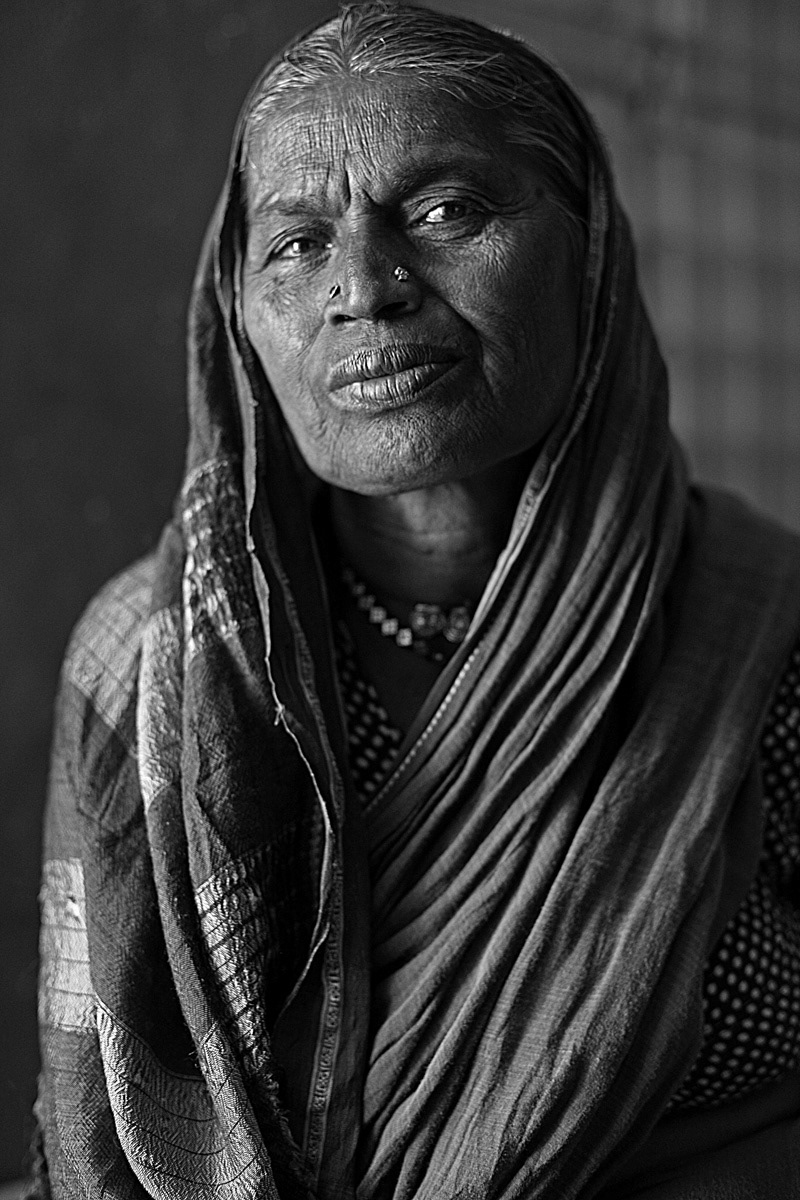
Shazia Begum, 65, in the last stages of cancer, showed great courage when she refused to let the disease get the better of her. With the help of the Homecare team, she made enough of a recovery to lead a normal, self-sufficient life.
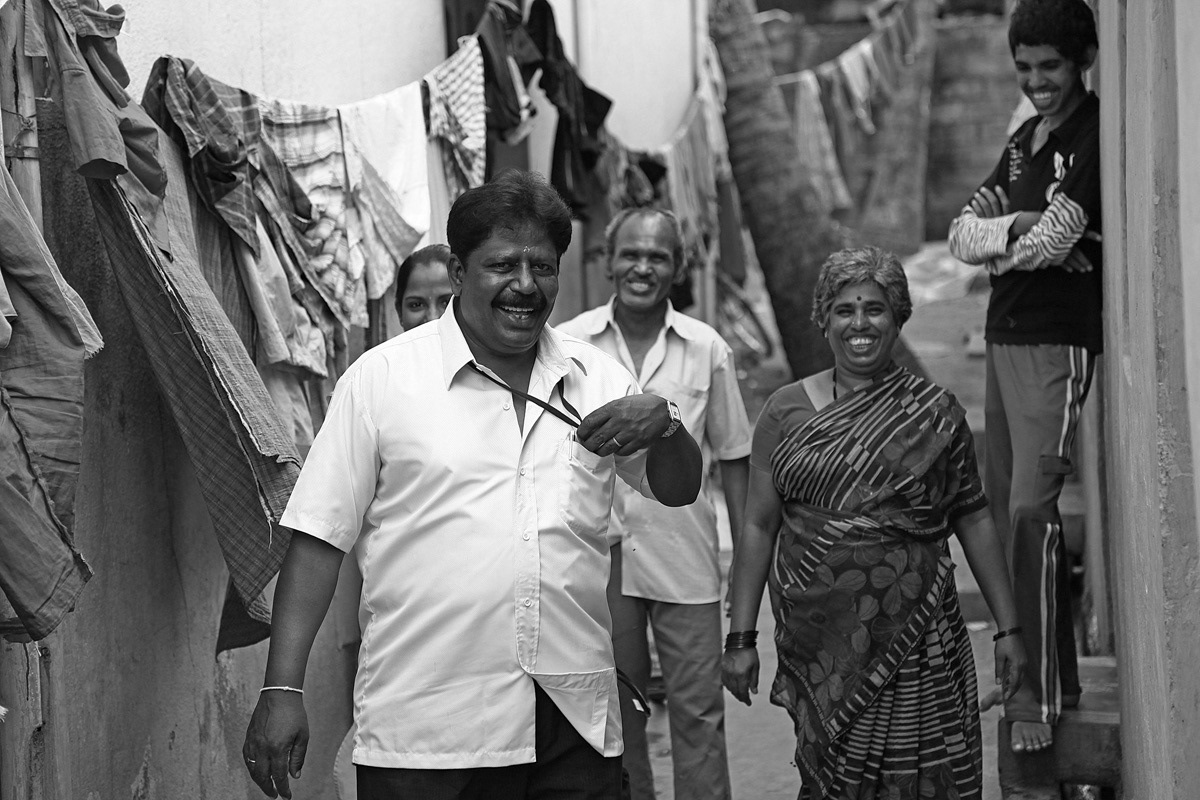
Almost everytime, he leaves patients with a laugh and good cheer.
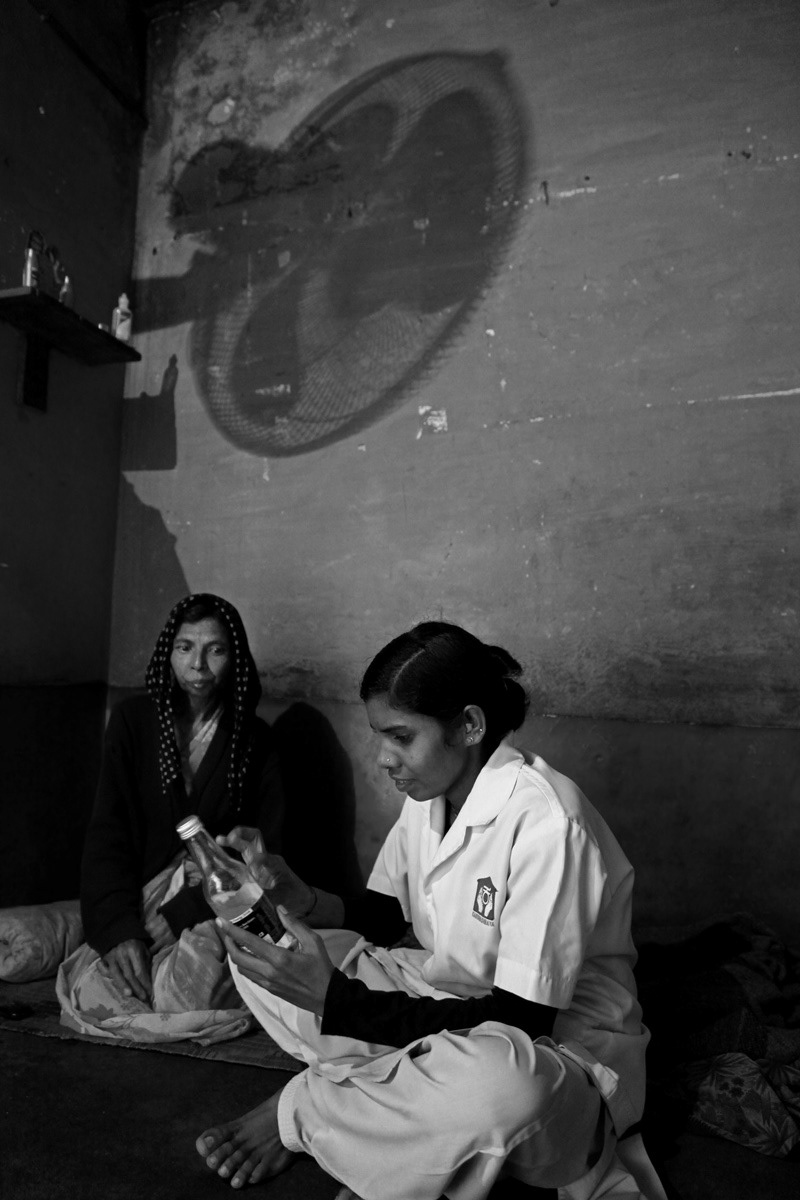
Accessing morphine for pain relief is one of the biggest challenges for institutes offering palliative care in India. Here, a homecare nurse labels a bottle of oral morphine solution to prevent accidental use.
Karunashraya has offered free home care services for terminal cancer patients since 1995. It established an in-patient service in 1999 at its 50-bed hospice in Marathahalli, Bangalore. The hospice operates solely on cash and in-kind donations, which sometimes attracts strange items. Donors range from companies like the Tata Group and GlaxoSmithKline to concerned individuals.
Faced with death, the terminally ill go through a range of feelings and thoughts: they savor the good memories, express regrets, bemoan the slippage of time, show consideration for children and other loved ones, get angry and frustrated, discover pride and satisfaction, and constantly ponder over the meaning of life, death and the afterlife.
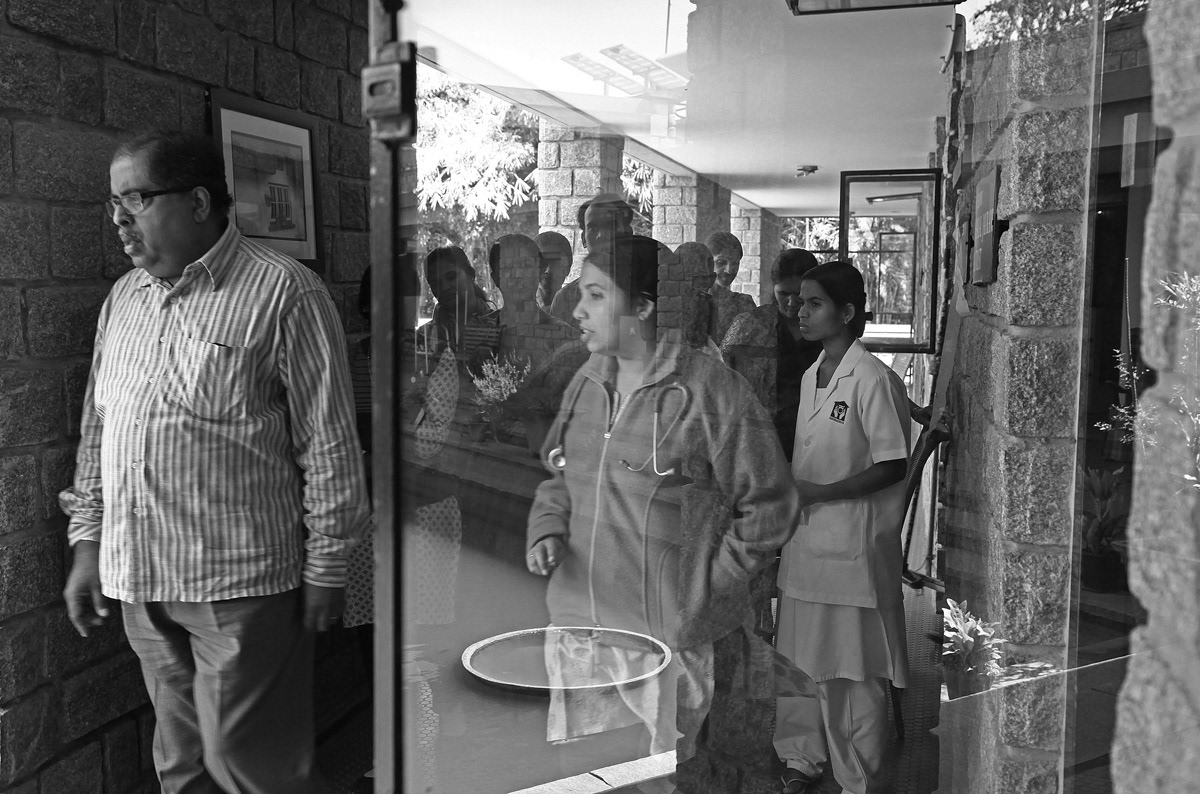
Dr. Nagesh Simha is the Medical Director at Karunashraya and President of the Indian Association for Palliative Care. He is a motivational speaker constantly in motion, offering anecdotes, humour and serious insight to everyone around him. Here, he leads and instructs a team on daily rounds.
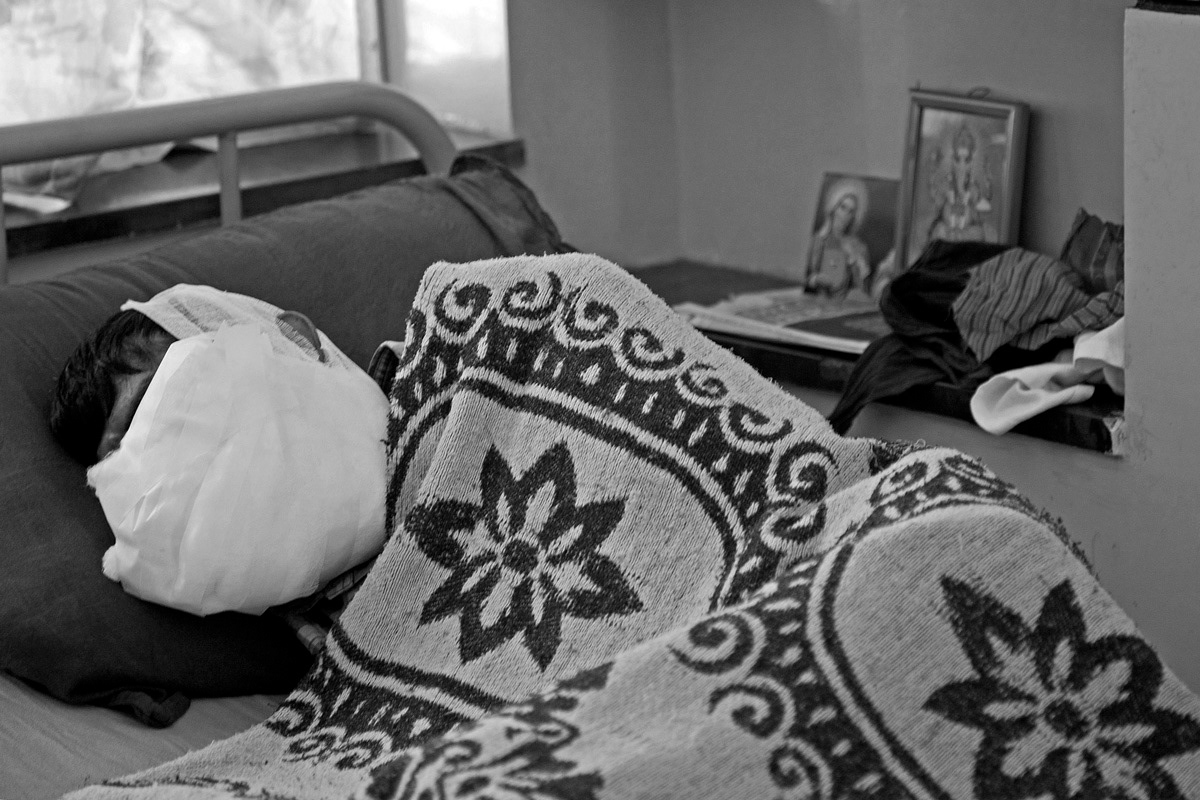
“The current state of palliative care in India is not very good and the facilities still have a long way to go,” says Dr.Simha. “There are some states where palliative care is very active. The best, of course is Kerala, which is doing a phenomenal job and involving the government, panchayats, the police, volunteers, medical institutions and students.”
![“The concept of palliative care is not understood by many people and one of the biggest impediments is the medical profession itself,” says Dr. Simha. “The [idea prevails] that if the person’s disease overtakes him, it is the doctor’s failure. [The medical fraternity isn’t] doing this purposely, but because of ignorance. Things are changing, but India is such a vast, complex country. I’m confident that in the next 5-10 years, we’ll see [many more] palliative care centers, not only for cancer but also for end-stage kidney and cardiac diseases.”](https://cdn.myportfolio.com/68af5e06ab8d3d9ffafab94b9c6bc573/5d351311-3c0c-432e-8c3f-89746fe3c5a6_rw_1200.jpg?h=e70a956523803827abe1ea9e862bc5b3)
“The concept of palliative care is not understood by many people and one of the biggest impediments is the medical profession itself,” says Dr. Simha. “The [idea prevails] that if the person’s disease overtakes him, it is the doctor’s failure. [The medical fraternity isn’t] doing this purposely, but because of ignorance. Things are changing, but India is such a vast, complex country. I’m confident that in the next 5-10 years, we’ll see [many more] palliative care centers, not only for cancer but also for end-stage kidney and cardiac diseases.”
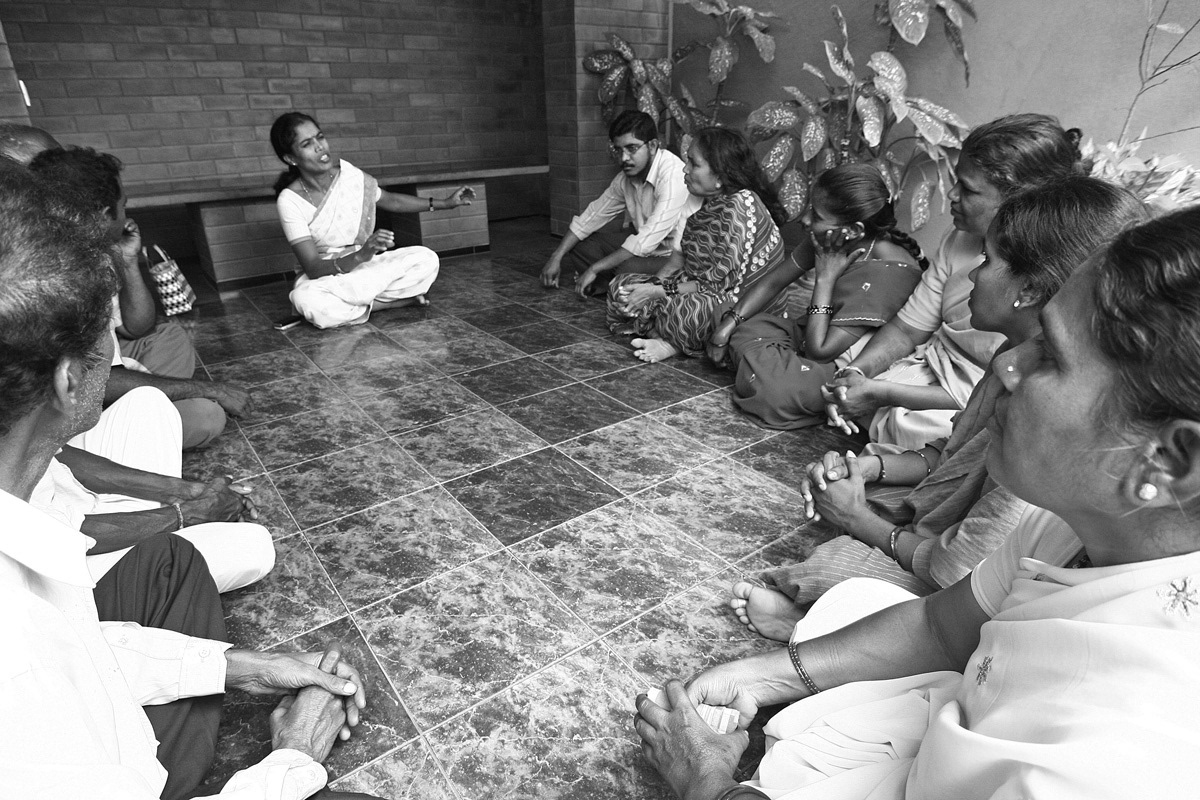
Patients have access to experienced counselors like Renuka, who strive to put bewildered and fearful minds at ease. There are group and individual counseling sessions with family members and caregivers, many of whom are illiterate and harbor common misconceptions like cancer being contagious.
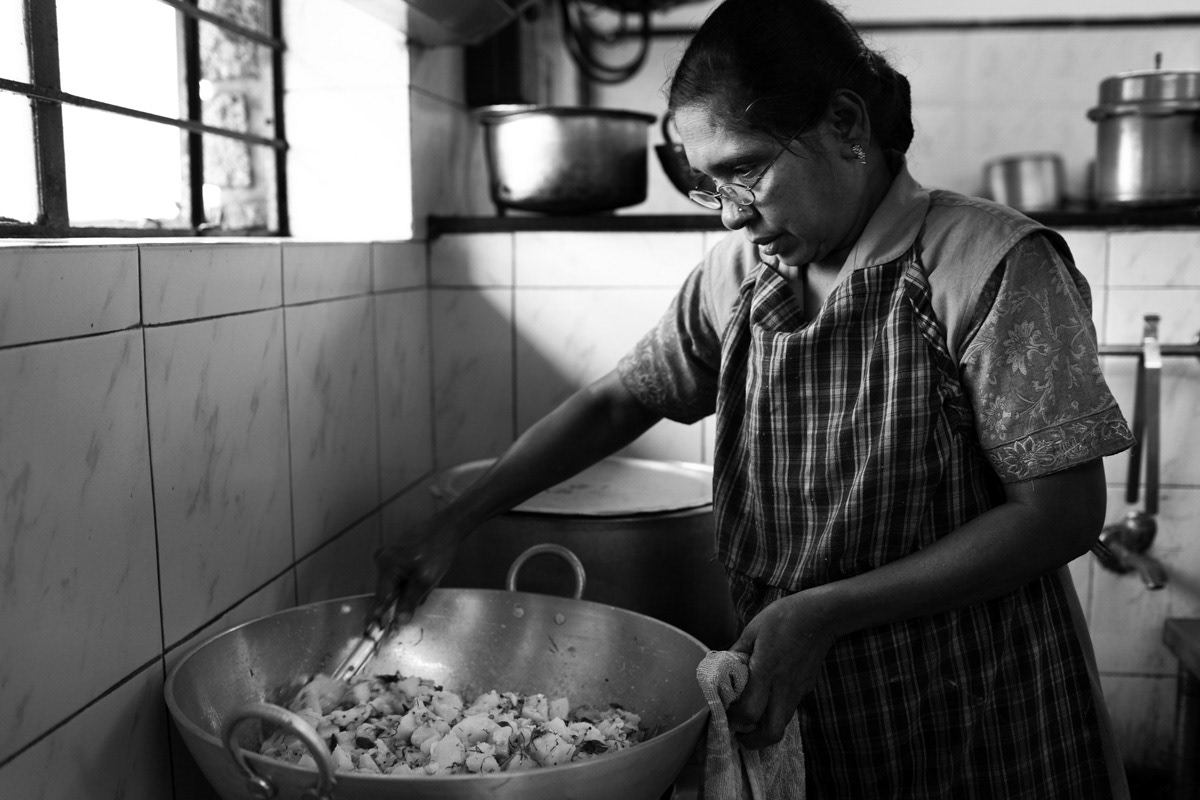
The kitchen is headed by Kurshid, who has served here for over a decade. With a watchful eye and a gleeful grin she puts tremendous love into her cooking.

The kitchen staff maintains a diary of the patients’ dietary requests and takes these very seriously, since they never know if a certain meal is a patient’s last one. Having cooked thousands of last meals, from puris to fish curry, no request is too big or trivial to conjure up in this kitchen.
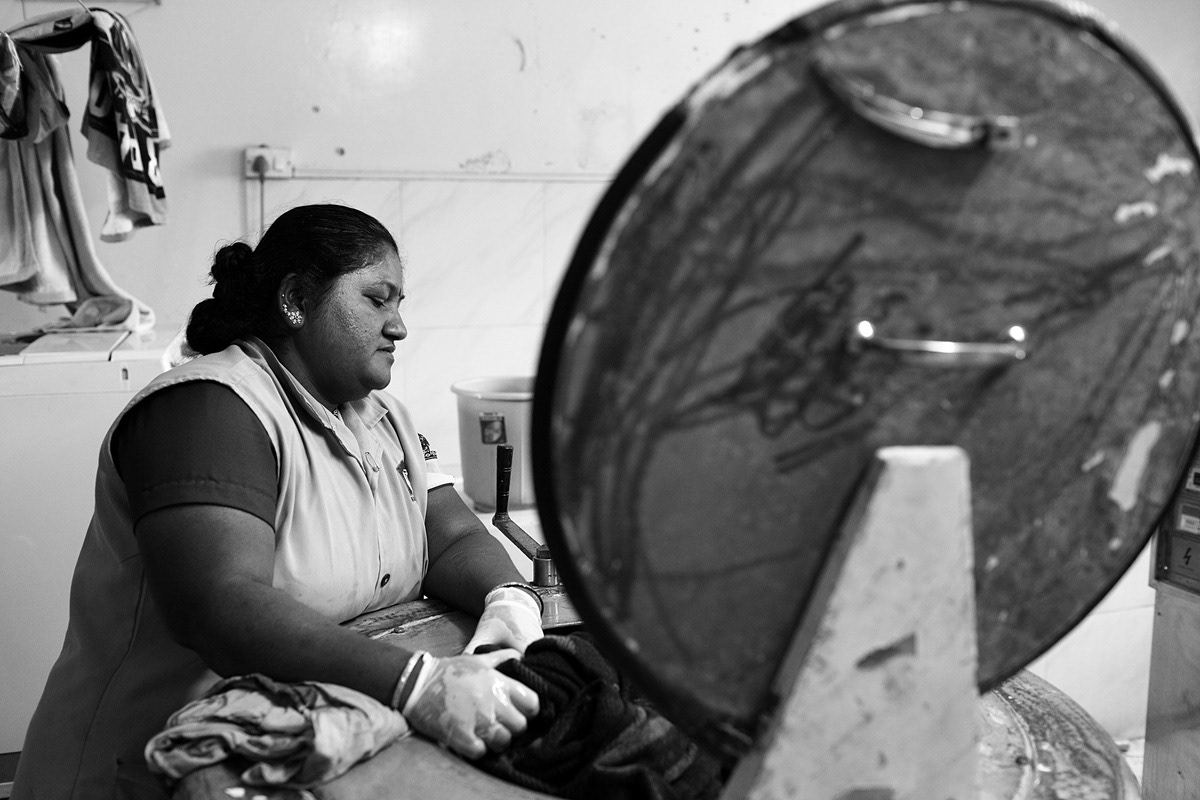
Laundry might seem minor in the larger scheme of things, but Rosemary (45) in the housekeeping team has tackled the vast quantities for 11 years now.
